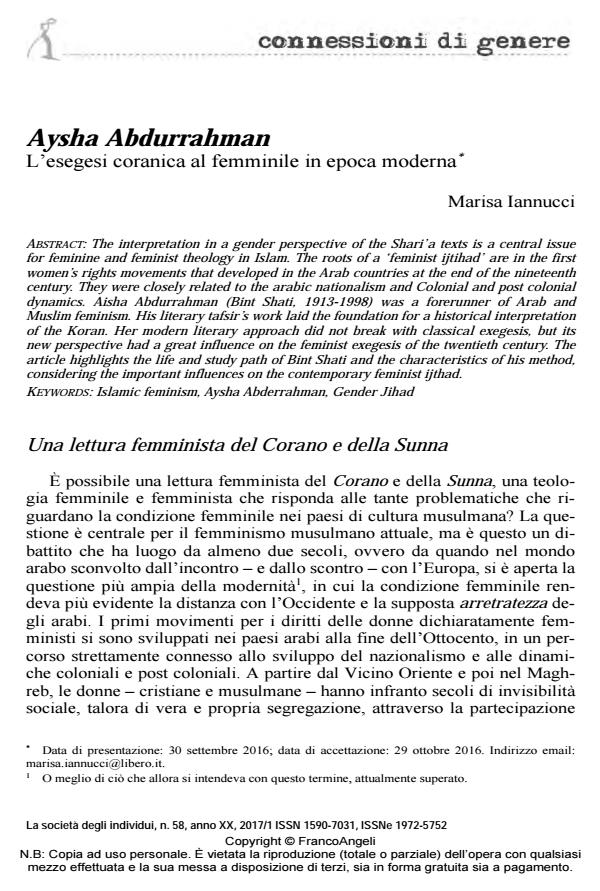Aysha Abdurrahman. L’esegesi coranica al femminile in epoca moderna
Titolo Rivista SOCIETÀ DEGLI INDIVIDUI (LA)
Autori/Curatori Marisa Iannucci
Anno di pubblicazione 2017 Fascicolo 2017/58
Lingua Italiano Numero pagine 12 P. 22-33 Dimensione file 232 KB
DOI 10.3280/LAS2017-058003
Il DOI è il codice a barre della proprietà intellettuale: per saperne di più
clicca qui
Qui sotto puoi vedere in anteprima la prima pagina di questo articolo.
Se questo articolo ti interessa, lo puoi acquistare (e scaricare in formato pdf) seguendo le facili indicazioni per acquistare il download credit. Acquista Download Credits per scaricare questo Articolo in formato PDF

FrancoAngeli è membro della Publishers International Linking Association, Inc (PILA), associazione indipendente e non profit per facilitare (attraverso i servizi tecnologici implementati da CrossRef.org) l’accesso degli studiosi ai contenuti digitali nelle pubblicazioni professionali e scientifiche.
The interpretation in a gender perspective of the Shari’a texts is a central issue for feminine and feminist theology in Islam. The roots of a ‘feminist ijtihad’ are in the first women’s rights movements that developed in the Arab countries at the end of the nineteenth century. They were closely related to the arabic nationalism and Colonial and post colonial dynamics. Aisha Abdurrahman (Bint Shati, 1913-1998) was a forerunner of Arab and Muslim feminism. His literary tafsir’s work laid the foundation for a historical interpretation of the Koran. Her modern literary approach did not break with classical exegesis, but its new perspective had a great influence on the feminist exegesis of the twentieth century. The article highlights the life and study path of Bint Shati and the characteristics of his method, considering the important influences on the contemporary feminist ijthad.
Parole chiave:Islamic feminism, Aysha Abderrahman, Gender Jihad
Marisa Iannucci, Aysha Abdurrahman. L’esegesi coranica al femminile in epoca moderna in "SOCIETÀ DEGLI INDIVIDUI (LA)" 58/2017, pp 22-33, DOI: 10.3280/LAS2017-058003